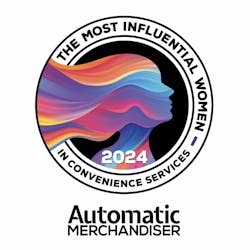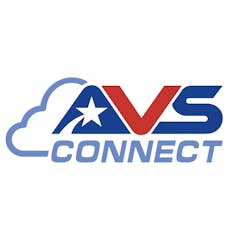Being green – what does it mean ?
The term “green” has been driven deep into the collective consciousness of the American public, as well as many other industrialized countries of the world. We hear it relating to so many phases of our personal and business lives that it has now become a commonly accepted fact of life if not a cliché, overly-used and perhaps too broad of a term.
So what does being green actually mean? We’ve heard other terms such as “carbon footprint,” “stainability,”
“environmentally friendly” and “organic.” There are lots of descriptions for what is essentially the same thing.
The term “green” is representative of environmentalism, which is simply the philosophy and social movement that has, at its center, a concern for the conservation and improvement of the natural environment, both for its own sake as well as its importance to civilization.
While the overall social and economic acceptance of environmentalism has really picked up steam in the past several years, the awareness of the impact our civilization is having on the environment dates back as early as 1272 when King Edward I of England banned the use of sea coal because of the smoke burning problems it had caused.
Why is it important to our Industry — how does this affect our businesses?
Obviously, adopting a “green” strategy affects how our individual companies operate. It can impact how and what you sell, have an internal and external social impact, and have a deep economic impact on your company. If you want your company to go “green,” you will have to approach it in two stages: 1) How you handle your company’s resources and 2) How and what you sell to your clients.
GOING GREEN CAN SAVE YOU GREEN
We first focus on your company resources. Our industry, as well as the overall U.S. economy, has received painful financial lessons within the past two years. If those lessons do not yield key changes in how we all do business, the results can be financially catastrophic.
A resource that has probably the heaviest use and has the greatest impact on a vending operation is fuel. Fuel is the perhaps the most glaring example of how a green strategy can impact a company’s finances.
From June of 2007 to June of 2008, the cost of gas increased an average $1.14 per gallon. The impact this has had on the average vending company is frightening.
According to Tom Whennen Jr., president of Triple A Services Inc. in Romeoville, Ill., their fleet’s fuel costs rose by 33 percent in the last year. This has resulted in a spending increase of over $5,000 per month compared to a year ago. Combine this fact with slipping sales, resistance to price increases at the account level and continuing increases in costs in every area of business operations and you have the recipe for disaster for today’s vending operation.
So what can be done about this? While alternative energies are being researched and hybrid vehicles are just now being rolled out to the market in a serious manner, focus must turn to making changes to yield as immediate of an impact as possible. There are quite a few easy and inexpensive maintenance steps that can be taken to add miles to every gallon of fuel and save money.
Step One: Vehicle maintenance
It may seem elementary, but simple proper vehicle maintenance can save lots of fuel. You can avoid gas vaporization by ensuring that your vehicle gas cap is not damaged, loose or missing. Tires must be properly inflated, otherwise it can cost you a few miles per gallon.
Replacing spark plugs regularly to avoid misfiring also helps fuel wastage. Lastly, replacing clogged air filters can improve gas mileage by as much as 10 percent.
Driving habits are another major contributor to poor fuel economy. These habits include exceeding speed limits, aggressive driving, and excessive idling.
When traveling at highway speeds, your drivers should keep windows closed if at all possible. By doing so, one can increase mileage by 10 percent. Steady driving helps as well, since sudden changes in speed wastes fuel.
Additionally, fuel can be wasted by prolonged warming up of the engine. You do not need to warm up an engine for more than 45 seconds, even on cold mornings.
Posting these tips in a common area for route drivers to read each and every day will help drive the message home. Hopefully, they will adopt these strategies for their company vehicle usage as well as their personal vehicle.
ROUTE EFFICIENCY
Route efficiency is also a key in making the most of your operation’s fuel dollar. Utilizing new technologies such as remote machine monitoring enables vending companies to schedule site visits only when necessary, pack a more accurate count of products needed for the empty machines and string together more efficient route plans.
As chief marketing officer of Cantaloupe System, a vending technology provider, Anant Agrawal explained,
“We knew our systems would help reduce fuel usage as well as wear and tear, but we recently put some numbers to it and were excited at the results. We determined that, utilizing our technology, vending operators could ‘prekit’ or prepack their trucks based on the exact needs of the account. By doing so, the truck will naturally weigh less.
“Once we asked some of our customers to measure this, we found fuel efficiency increased by an average of four miles per gallon. The result is an annual decrease of 28.57 percent (16,495 pounds) of carbon emissions and an annual fuel savings of $26,000 per truck for a typical 10-route vending operation.”
In addition, by utilizing a dynamic routing system, the numbers look even more impressive. Cantaloupe Systems estimated that this facet of their system will allow the average vending company to utilize four less trucks, thereby reducing total carbon emissions by 43.96 percent and saving an annual amount of $40,000 of fuel costs for a typical 10-route vending operation.
In an interesting exercise, Agrawal determined that if, theoretically, every vending company in U.S. utilized their system, an estimated 1.45 billion pounds of carbon emissions would be eliminated. That is 26 million trees freed up to provide oxygen for better purposes!
MONITOR ENERGY CONSUMPTIONAnother “green” strategy to impact the bottom line is to review internal energy use. In examining the areas that your business uses energy, it can be summarized in a few broad categories: electricity, natural or propane gas and water. These are non-renewable resources that our businesses all rely on and depend on to operate on a daily basis. But how can we limit their use or use them more efficiently?
In regards to electricity, there is an increasing number of products being released that have a significant impact on this resource. Perhaps the most well-known and widely accepted is the CFL or compact fluorescent light bulb. Since CFLs use about 75 percent less energy than standard incandescents, an operator can save about $30 over the lifetime of that bulb.
CFLs also produce 75 percent less heat as well, so they have an impact on cooling costs. These bulbs continue to come down in cost and are being offered in many more different sizes and shapes than when originally introduced.
GAS AND WATER CONSERVATIONSaving on gas and water is a bit more challenging, but still very possible. This simply comes down to better use of these resources. Check the heating and air conditioning systems. Are they older and inefficient?
This would be a good time to decide if upgrading to newer energy efficient models will prove to be a positive investment. Check the level of insulation and how well the windows seal. Take note of whether route drivers or other employees are leaving doors open for a long time during excessive hot or cold snaps. A common sense approach will most likely work best here. The bottom line is to use these resources as efficiently as possible.
One area that is often overlooked in determining the best use of resources is the need to recycle computer equipment and cell phones. With the increasing speed of how often new technology is being released, vending operators often find themselves with piles of CPUs and monitors that need to be either given away or tossed out.
There is one company that has been set up to not only help recycle these items, but may possibly even pay for them. Myboneyard.com was established to help companies safely recycle their computers, cell phones, laptops and monitors. According to the Website, they will send you pre-paid shipping labels and ensure that any personal or proprietary information is safely removed.
GOING GREEN CAN ADD PROFITNow, let’s examine how going green can increase a company’s sales and overall profit. Where can a green strategy have an impact on the offering of these products? The answer lies mostly within the method that we deliver these products to the consumer.
In 1992, the Environment Protection Agency (EPA) developed a standard to identify and promote energy saving products called Energy Star. Today, many companies are beginning to require that all Energy Star equipment is used within their buildings whenever possible. This indeed includes vending machines and OCS brewers.
Most vending machines are currently being built to qualify for this standard. Regarding existing machines in the field, USA Technologies Inc., a technology provider, offers a program that allows operators to convert those machines into Energy Star compliant status.
ENERGY EFFICIENCY ALSO HELPS WIN BUSINESSNot only has adopting Energy Star equipment enabled companies to win bids as well as save their accounts money, but it has also allowed operators to receive rebates from utility companies.
As of March 2008, 45 utility companies were enrolled in an incentive program aimed at encouraging customers to purchase energy saving technology.
USA Technologies prepared for the demand of energy saving tools by developing and marketing a suite of products designed to do just that. One of those products, VendingMiser®, reportedly can reduce power consumption in a cold drink machine by 46 percent.
This results in an average savings of about $150 per machine per year. It accomplishes this by powering down a vending machine when an area has been unoccupied for a set period of time.
This has proven to be an effective tool to reduce energy use and, subsequently, costs. In 2004, the State University of New York at Buffalo implemented 132 vending machines that were Energy Star approved. The result: they saved over 250,000 kilowatts of energy and $20,000 each year.
Another product that has recently hit the market is LED lights that can be installed quickly into a vending machine and attach to the existing harness, eliminating the need for a ballast. An LED light kit can represent significant savings in both energy use as well as replacement cycles.
In the OCS world, utilizing equipment that selectively uses energy is key. Most coffee brewers, single-cup and traditional, have functions that allow the systems to lower the ambient temperature of the water tanks so less energy is required to keep the water hot during off-peak times.
Functions such as this, as well as increased tank insulation, have had an impact on the amount of energy needed by these pieces of equipment.
These steps taken in both the OCS and vending segments are good for the environment as well as a great sales tool. Letting your current or potential clients know that your equipment will save them energy costs will no doubt go over well. And, again, many accounts are now requiring energy saving equipment.
THE BOTTLED WATER DEBATEWith all of the possible positive opportunities that exist regarding the environment, there is a dark cloud hanging over the industry. There is increasing criticism being levied against vending and OCS companies regarding PET (polyethylene terephthalate) bottles, which is what most water bottles are packaged in.
High profile political figures are getting publicly involved in the debate ranging from the mayor of Seattle, Wash. who questioned whether these bottles are actually being recycled, to an alderman in Chicago who has proposed a tax against bottled water to dissuade their purchase.
The overall concern is that these products are contributing to the further bloating of our landfills. While all plastics are a concern, bottled water is an easy and visible target. This is one of the most popular products within our industry and its popularity continues to rise.
The fact is that PET bottles are recyclable and the bottled water community is actively involved in promoting recycling of its packaging. They have even made the bottles more lightweight to reduce its carbon footprint.
However, like most environmental debates, this one will continue to rage on without, perhaps, ever being fully resolved. But there are two very easy steps the vending and OCS operators can take to ease the criticism within their community. One would be to set up recycling bins at each stop that purchases these products and work with the sites to arrange for a recycling pick up.
And, two, offer the location the option of leasing a point-of-use water system. These systems are increasing in popularity, offer a very good profit for the operator and are very environmentally friendly.
ECO-FRIENDLY PRODUCTS FOR CUSTOMERS
Since the green movement has spread among businesses and consumers in just about every industry, what we sell to those businesses has changed as well. “Here lies an opportunity to increase margins and increase sales while promoting products that can make a positive impact on the environment and our client’s health,” said Michael Klong, president of Classic Vending in Chicago, Ill.
Klong has been offering environmentally friendly products in his OCS division for several years. According to him, “Sales for these types of products have been fairly slow up until the beginning of this year. From the start of 2008, we have been receiving a lot of interest in sustainable products. The costs of these items originally were fairly expensive, but have come down as interest has been increasing.”
Some operators have found that offering environmentally friendly products gives them an advantage in obtaining business. According to Anthony Simone, sales manager for NECCO Coffee in Kansas City, Mo., offering a green program has been a great door opener with new accounts.
“We are the only company in this area that offers a green program, and it has really received a lot of interest from the companies we call on. Many times we will come in to discuss our green products and leave with their coffee business as well,” Simone said.
ECO-FRIENDLY MARKET KEEPS GROWINGApproximately 30 percent of companies that sell OCS supplies are selling eco-friendly products and that number is rising every week. Again, these products provide a great sales tool and typically carry a higher margin than standard supplies. The breadth of these products is also increasing.
You can now find products such as forks and spoons made of vegetable starch, corn-based cold cups and tree-free bagasse (fiber that is a by-product of sugar cane) paper plates — all biodegradable and renewable.
By looking at the facts, we can safely guess that some permanent change is taking place. It will not hurt to work to adapt to this changing way of looking at our resources and what we offer to our customers. However, if you ignore it, it will most certainly not go away. Just watch how fast the numbers add up as you pump your next tank of gas.
For more information contact:
- Cantaloupe Systems, 866-986-7333, www.cantaloupesys.com
- Myboneyard, www.myboneyard.com
- USA Technologies Inc., 800-633-0340, www.usatech.com
- Energy Star, 888-782-7937, www.energystar.gov
TALKING POINTS
- Concern for the environment increasingly guides consumers’ and location decision makers’ purchases.
- Refreshment service providers have numerous options to operate in ways that protect the environment.
- “Going green” saves operators money and gives them a better marketing position with customers.
- The bottled water controversy remains an environmental challenge for operators. Operators must be aware that PET bottles are recyclable, but must also be cognizant of customer concerns.
- Operators can expand into “eco-friendly” products.






